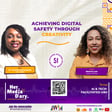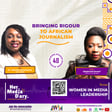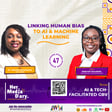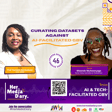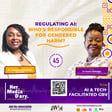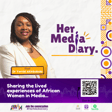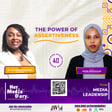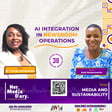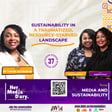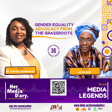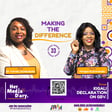
Her Media Diary Episode 42: “Winning Against All Odds” with Dr Joyce Kirabo
Dr Joyce Kirabo is a lecturer and trainer with over 13 years of experience in mentoring, coaching, teaching and delivering training programs. She holds a PhD in business Administration from Jomo Kenyatta University of Agriculture and Technology. In a world where stories of resilience and determination often go unheard, the journey of Dr. Joyce stands out as a beacon of hope. Growing up as a refugee in Uganda, Dr. Joyce faced immense challenges that could have easily derailed her dreams. However, her unwavering commitment to education became her lifeline, guiding her through the darkest of times.
Dr. Joyce's early life was marked by the trauma of the Rwandan genocide, a period that left deep scars on her community and family. As she navigated her childhood, she witnessed the struggles of her parents, who worked tirelessly to provide for their family despite their own lack of education. This backdrop instilled in her a profound understanding of the value of education, especially for women who often faced additional societal barriers.
Determined to rise above her circumstances, Dr. Joyce excelled academically, earning multiple diplomas and degrees against all odds.
Today, Dr. Joyce is not only a lecturer and trainer but also a role model for young women aspiring to make their mark in the media industry.
Subscribe to Her Media Diary now on your favourite podcasting platform https://linktr.ee/hermediadiary
Learn more about the podcast via www.hermediadiary.com
List of Organisations/Resources to Support Women in Media
- Rise Women in Broadcast
- Journalist’s Toolbox:
- International Women’s Media Foundation (IWMF)
- African Women in Media (AWiM)
- Public Media Women in Leadership
- International Journalists’ Network (IJNet)
- Women’s Media Center (WMC)
- Media Career Development Network
- The World Journalism Education Council (WJEC)
- AWiM Learning
